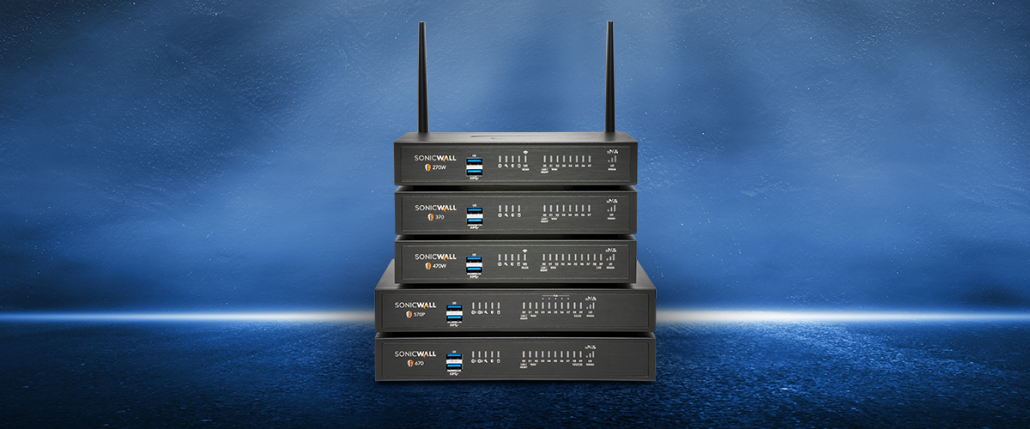Understanding SonicWall Firewalls: A Comprehensive Overview

3CX Phone System: Revolutionizing Business Communications
June 17, 2024
Happy Thanksgiving
November 25, 2024In today’s increasingly digital world, network security is of paramount importance for businesses of all sizes. Cyber threats continue to evolve, and without proper defenses, organizations risk severe financial, operational, and reputational damage. One of the tools many companies rely on to secure their networks is a SonicWall firewall. SonicWall, a well-established leader in the cybersecurity industry, offers a wide range of firewall solutions tailored to meet the needs of enterprises, small businesses, and even home offices.
What is a SonicWall Firewall?
A firewall acts as a barrier between your internal network and external, potentially harmful networks such as the internet. SonicWall firewalls perform this task by inspecting incoming and outgoing traffic, allowing or blocking data packets based on pre-established security rules. What sets SonicWall apart is its emphasis on Unified Threat Management (UTM), meaning it integrates multiple security functions—such as antivirus, intrusion prevention, and VPN capabilities—into a single device.
Key Features of SonicWall Firewalls
1. Deep Packet Inspection (DPI)
SonicWall’s Deep Packet Inspection technology goes beyond traditional firewalls that simply inspect packet headers. DPI scrutinizes the data within each packet, looking for malicious content, intrusions, and other security risks. This inspection process enables the firewall to detect sophisticated threats, such as malware hidden within legitimate traffic, encrypted data, or files.
2. Comprehensive Threat Protection
SonicWall offers real-time protection against a variety of threats, including viruses, malware, ransomware, and phishing attempts. The firewall’s built-in Gateway Anti-Virus (GAV) and Intrusion Prevention System (IPS) monitor all traffic for known threats and anomalies, stopping attacks before they infiltrate your network.
3. Secure VPN Connectivity
Virtual Private Networks (VPNs) are crucial for businesses that need to provide secure remote access to their employees or branch offices. SonicWall firewalls support SSL VPN and IPSec VPN to enable encrypted communication channels, ensuring that sensitive data is protected even when accessed remotely.
4. Application Control and Content Filtering
SonicWall allows administrators to control which applications are allowed or blocked on the network. Whether it’s social media platforms, streaming services, or specific cloud applications, IT teams can enforce usage policies to improve security and productivity. In addition, content filtering ensures that inappropriate or harmful websites are restricted, reducing risks associated with web-based threats.
5. Scalability and Flexibility
SonicWall firewalls are designed to be scalable, making them suitable for businesses of any size. Whether you’re managing a small office or a global enterprise, SonicWall offers models that fit your needs, with the ability to upgrade and expand as the network grows. Additionally, their SonicOS firmware provides an intuitive and customizable interface for easy deployment and management.
6. Advanced Networking Capabilities
Beyond just security, SonicWall firewalls are equipped with advanced networking features such as load balancing, Quality of Service (QoS), and WAN failover. These functionalities help businesses optimize network performance and ensure high availability, even during traffic spikes or hardware failures.
Types of SonicWall Firewalls
SonicWall offers a wide range of firewalls, which can be categorized based on their deployment needs and scale.
1. TZ Series
The TZ series is designed for small businesses, branch offices, and retail locations. These devices offer essential security features, such as DPI, VPN support, and content filtering, at a budget-friendly price. Despite their compact size, TZ series firewalls are powerful enough to protect against modern threats.
2. NSa Series
The Network Security Appliance (NSa) series is tailored for medium-sized businesses, providing higher throughput and more advanced security features. These firewalls are ideal for organizations with growing networks, offering capabilities such as advanced traffic analysis, application control, and multi-gigabit performance.
3. NSv Series (Virtual Firewalls)
SonicWall’s NSv series delivers all the benefits of a hardware firewall in a virtualized environment. This series is perfect for businesses that are moving to the cloud or need to secure virtual networks. The NSv series provides the same robust protection as physical appliances, but in a software-based format, which is ideal for data centers, cloud infrastructure, and distributed networks.
4. SuperMassive Series
For large enterprises and data centers, the SuperMassive series offers unmatched performance and security. These high-end firewalls are designed to handle heavy traffic loads while providing top-tier protection against sophisticated threats. With multi-gigabit throughput and full DPI, the SuperMassive series is perfect for demanding environments that cannot afford any downtime.
Management and Monitoring
SonicWall firewalls come with powerful management tools, including the SonicWall Global Management System (GMS), which allows administrators to manage multiple firewalls from a centralized console. GMS enables IT teams to monitor network activity, apply consistent security policies, and generate detailed reports for compliance and auditing purposes.
Additionally, SonicWall’s Capture Security Center offers cloud-based management and reporting, making it easier for businesses to monitor and control security from any location. Through real-time threat intelligence, businesses can stay updated on the latest security trends and adjust their defenses accordingly.
Benefits of Using a SonicWall Firewall
1. Enhanced Security
SonicWall firewalls provide comprehensive protection against a wide variety of cyber threats, reducing the risk of data breaches, ransomware, and other attacks. Their DPI and threat intelligence features ensure that even the most advanced threats are detected and neutralized.
2. Reduced Complexity
By consolidating multiple security functions into one device, SonicWall reduces the complexity of managing separate solutions for antivirus, intrusion prevention, VPNs, and content filtering. This simplification leads to lower maintenance costs and streamlined operations for IT teams.
3. Cost-Effective Solutions
With a range of products that cater to businesses of all sizes, SonicWall firewalls are known for providing excellent value. The ability to scale and integrate with existing infrastructure makes it an affordable option, even for small businesses with limited budgets.
4. Compliance
Many industries are subject to regulatory requirements that mandate certain levels of data security, such as GDPR, HIPAA, or PCI DSS. SonicWall firewalls help organizations maintain compliance by offering features like logging, reporting, and secure data handling.
Conclusion
SonicWall firewalls are a trusted choice for organizations looking to protect their networks from a rapidly evolving threat landscape. With a comprehensive suite of security features, scalability, and flexibility, SonicWall delivers high-performance solutions that keep businesses safe, whether they are small startups or global enterprises. By investing in a SonicWall firewall, companies can bolster their cybersecurity defenses, ensuring that sensitive data and critical systems remain secure from unauthorized access and cyber threats.


